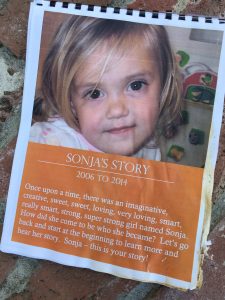by Lisa Fuller | Sep 7, 2023 | Communication, Conflict, Connection & Love, Encouragement, General, Parenting, Self-care, Setting Limits, teenager
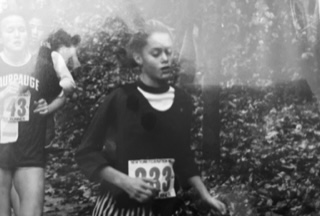 I was competing in my first cross country race, a freshman in high school, when I hit the notorious ‘wall’ going up aptly named Cemetery Hill in Van Cortlandt Park in the Bronx. My legs felt like lead stumps, my breath was short and effortful, and utterly defeated I decided to walk. Then I heard a voice, it was my Coach Mitch, yelling in his Queens accent, Come on Fuller, you can do this!!! I didn’t even know he was there, yet somehow he appeared, clipboard shoved in his armpit so he could clap his hands and wave me up the hill. As I trudged past him, I used the little energy I had to swear at him.
I was competing in my first cross country race, a freshman in high school, when I hit the notorious ‘wall’ going up aptly named Cemetery Hill in Van Cortlandt Park in the Bronx. My legs felt like lead stumps, my breath was short and effortful, and utterly defeated I decided to walk. Then I heard a voice, it was my Coach Mitch, yelling in his Queens accent, Come on Fuller, you can do this!!! I didn’t even know he was there, yet somehow he appeared, clipboard shoved in his armpit so he could clap his hands and wave me up the hill. As I trudged past him, I used the little energy I had to swear at him.
I had to keep going
At the time I didn’t understand it but looking back now it’s clear I was furious at Mitch because I wanted to give up and he wouldn’t let me. His words meant someone had faith in me and was expecting me to finish, so I had to keep going.
We are both the runner in this story AND the coach
As parents, we know that standing by our children during their darkest hours requires a special kind of endurance. We are both the runner in this story AND the coach. We have to endure the pain and take the brunt of our children’s stress, anxiety and even anger at the challenges they face.
Do you remember that feeling of intense love and simultaneous dread when you first became a parent? For me it sounded like this, “from here on out, I will, without question, jump in front of a bus for this human.” My children would forever be my priority.
But it wasn’t until son #2 was in high school and became addicted to vaping, then drugs, that I realized the depth of inner strength I’d need to endure this level of challenge for my child.
Parenting calls upon the limits of human endurance
If you’ve ever loved a child suffering with addiction (or mental health issues, learning differences, social challenges or any of the other tough situations that young people face), you know how hard and painful it is to let go while also being present and not giving up. Parenting calls upon the limits of human endurance.*
FIX IT!
As a mother, my first instinct was to fix the problem. I fed him nutritious and delicious meals. I monitored who he hung out with, where he went. I tried, through lengthy discussion, to talk him out of it. And we even went to hot yoga together twice a week at 5:30am (confusing I know but it was part of his effort to convince me that he didn’t have a problem). But nothing fixed it or got him to stop using drugs. Nothing fixed the tension in our home, the silence, the anger and sadness.
Let go….
Finally, with resignation and relief, I let go and focused on what I could control: myself. I knew the only thing I could do was to continue showing up for him. Continuing to show up for someone you’re sometimes afraid of and other times furious at isn’t simple. Equally, if not more difficult was to continuously muster the courage I’d need to have faith that he would get through it, that he would make it up that hill alive.
Most of the time I felt like a failure and also a person who was doing her best.
During these three years my father died, my grandmother died, my dog died and I was diagnosed with skin cancer.
As a parent we endure what our children go through while juggling the complexities of our own life.
During these three years, I was in disbelief, not that this was happening in our family, but just at how extraordinarily painful life can be.
I questioned if I could keep going through my grief and fear, but I knew that giving up was not an option. It felt like that bus I’d imagined 20 years ago was heading directly for me.
With some combination of good fortune and persistence, my son and I survived, which is a story for another time. Everyday I’m grateful and everyday I know how lucky we are because there are so many families who continue to suffer or don’t make it.
Today he’s working as a counselor with young people facing addiction while attending college. He tells me that what made the difference for him was knowing he had a family that loved him and didn’t give up on him, even when he gave up on himself.
You can read my specific strategies for supporting a child in the throes of addiction below.
If you’re facing a hard situation as a parent I’m here to remind you:
- You’re not alone and that the isolation that parents feel during such a struggle adds immeasurably to the pain… so even though it can feel impossible, I encourage you to reach out for support.
- While you feel like you’re forging your way up your own Cemetery Hill, you have the power to tap into the special kind of endurance despite the sadness, anger or fear you may be experiencing, you can do this. You can hang in there when it hurts and when you mess up and say the wrong thing. Your child will know you tried your best even in the worst of times.
You can do this!!!
Endurance of mind, heart and body for loving an addicted child:
- Establish firm boundaries around safety: I did not leave his younger sister alone with him, nor did I let him drive the car.
- Don’t be afraid to enlist help: I met repeatedly with the vice principal to discuss strategies to make drug use at school more difficult, and reached out to teachers and coaches for support.
- Allow for natural consequences: I did not call the school to excuse his tardiness, absenses, missed work, or neglect for sports practice or competitions.
- Take care of yourself: I made imperfect efforts towards attending weekly (sometimes daily) Al-Anon meetings, reaching out to friends for support, writing it down, exercising, eating healthy food and trying to get enough sleep (this was particularly challenging).
- Cultivate self-compassion: this level two in self-care is a key to how well we treat ourselves and others. Kristen Neff has exercises to help cultivate true self-compassion and one of those is writing.
- Strive for consistency: I maintained predictable meal times, regular communication, and continued to literally tuck him in at bedtime each evening, despite the pain of facing his condition.
- Be present for the recovery journey: I researched school and treatment options, accompanied him to programs, picked him up when he failed, found other options, and kept walking the road with him towards recovery.
- Share your struggle with others: I didn’t keep his drug problem a secret or let it become a cause for shame for him or myself. I reminded myself that drug addiction is an all too common issue for families and I could lean on others for support.
To learn more about how I might be able to support you, schedule a time to meet.
Join my 7-week Parenting Series (via Zoom) beginning September 28th!
This post was inspired by a quote by George Yeoman Pocock that I first read years ago as it was the epigraph to The Boys in the Boat by Daniel James Brown. I was teaching parenting classes at that time and the words jumped off the page. His insights into the special kind of endurance needed for rowing described perfectly the predicament we parents find ourselves in.
Rowing is perhaps the toughest of sports. Once the race starts, there are no time-outs, no substitutions. It calls upon the limits of human endurance. The coach must therefore impart the secrets of the special kind of endurance that comes from mind, heart, and body.
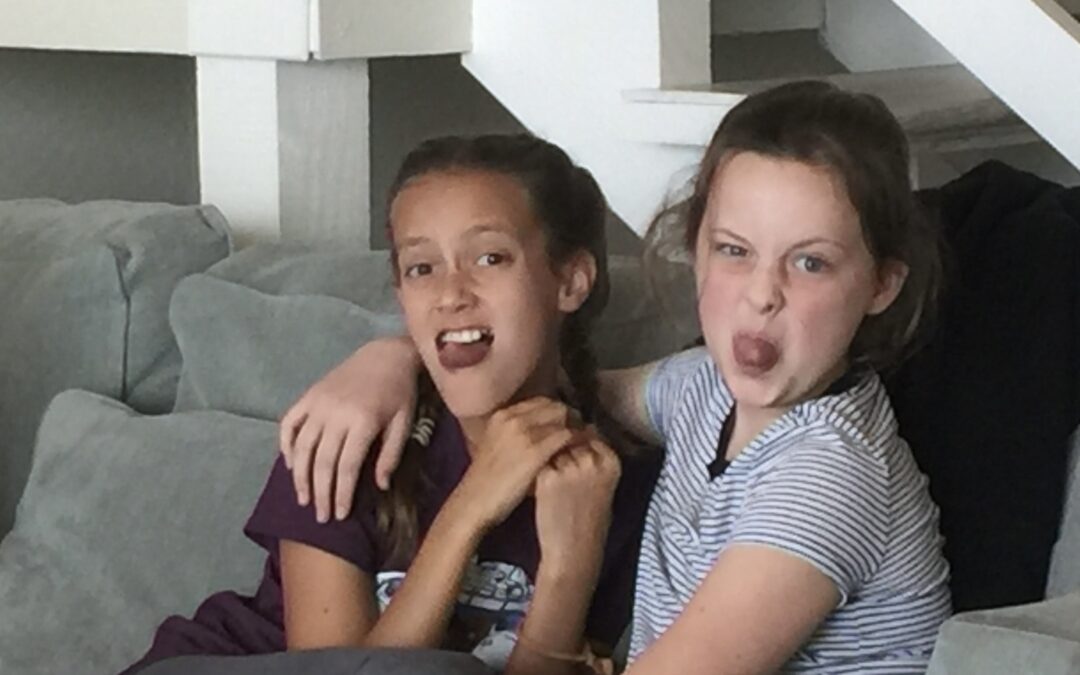
by Lisa Fuller | Feb 27, 2023 | Communication, Connection & Love, Feelings & Emotions, General, Parenting, Self-regulation, teenager
At the end of a recent evening talk, a woman came up and said, “Eighty percent of my relationship with my twelve-year-old daughter is amazing. We’re close and connected, but there’s one thing I’d like to run by you.” Lifting her eyebrows, she confessed, “My daughter’s embarrassed by me!”
The woman continued, “I mean, when I was her age I was embarrassed by my mom, but that was different because my mom WAS embarrassing!”
She rolled her eyes at the irony and we both smiled.
I reassured her, “Your daughter’s embarrassment is normal, and it’s something I’ve experienced regularly from my own sixteen-year-old daughter in recent years. But I can almost promise you she will outgrow it. The best thing you can do is have a sense of humor about it with yourself and with her. If you can hold her criticism lightly and keep laughing, she’ll experience you as a mom who’s strong and grounded in her self worth.
I’m no stranger to the pain and vulnerability that comes with parenting a young teen, so my advice for this parent stems from my continuing to move forward, ego bruises and all!
As I reflected on her question, I thought about how Gretchen Schmelzer describes how trust between parent and child is built through our “endless thereness”:
…. trust is built not because you are loved, but because someone loved you anyway. They loved you when you were angry, or messy, or cranky or a total and complete pain in the ass. They loved you when you forgot, or remembered—when you said it or when you didn’t say it. They didn’t love you because you could do it—they loved you anyway, even when you couldn’t.
As a parent, loving our child despite the hard times is what builds trust. This call for our endless thereness is one reason parenting is so challenging, but it is also why it has the potential to radically change us. Kids give us the opportunity to love another person not because they are always lovable, but because we’ve made the commitment to love them.
We’re there and love our child anyway when:
- we get yet another voice message alert that our child has cut class.
- we learn that our child lied to us about their plans.
- our child climbs on the dining table while we’re trying to share a family meal.
- our child is embarrassed by us, for no good reason 😣
We love them anyway.
Can you relate to this story? Do you have questions? It’s so supportive to know we are not alone! Please share in the comment below.
***. I’m offering an in-person (Sept12) and via Zoom (Sept 14) 7-week parenting series in the East Bay beginning Sept12 and and two 8-week Writing Circles, via Zoom, beginning August 25 & 29.
by Lisa Fuller | Feb 22, 2023 | Communication, Connection & Love, Encouragement, General
By Kelly Bartlett
I use the word “empathy” a lot when I’m talking about parenting. Sometimes I forget it might not be entirely clear exactly what is meant by using empathy when communicating with children. When you hear or read that children need empathy and that parents can help resolve conflicts and bridge connections with empathy, what do you think? Do you know right away what to do or how to respond?
As Brene Brown so succinctly says, “Empathy is the antidote to shame.” It is what’s needed when a child feels bad, struggles emotionally, or has made a mistake. What children don’tneed in those moments is additional shame tacked on to their mistakes and unpleasant feelings to make them feel worse or unlovable. What children do need is empathy to see them through those moments. Empathy to reinforce your relationship. Empathy to help regulate brain chemistry; to assure a child, “The way you feel is normal. You’re normal.” Empathy to provide validation. “You have a right to feel that way.” Empathy to help a child get on the road to self-acceptance and self-love. “You may have made a mistake, but you are not a mistake.”
Here are five things you can do that will help you respond to a hurting child with empathy:
1. Take your child’s perspective. See the world through his eyes. His problems might seem trivial to you, but try to see them as he does. Broken crayons, lost toys, stuck zippers, or nightly clean-up time mean more to your child in his world than they do to you in yours.
2. Refrain from judgment. Yes, you may disagree with your child. You may think she was “wrong” for what she did, said, or felt during the conflict she had at school that day, but put that aside for now. Your child doesn’t need your judgment, she needs to be able to impart her own judgment. Help her do that by focusing on her feelings regarding what happened.
3. Communicate your understanding of your child’s feelings. This can be a glance, a nod, a knowing look. It’s kindness in the eyes and an “I get it” arm-wrap. It can be words, sure, but above all it’s a message. It’s a message that you understand because you’ve also had similar moments and similar feelings. Let him know you are here as his equal in this moment.
4. Stop before you say BUT. “Yes, you got into an argument with your friend. That happens. He got angry; your feelings were hurt. You’re very upset. BUT, you still should not have hit him…BUT that’s no reason to quit the game…BUT you need to learn how to control your temper.” It’s that last part that needs leaving off–that’s not part of empathy. Empathy is just sitting with the feelings for a bit. That might be really hard! It might feel unfinished. It might feel awkward to stop at, “You were really embarrassed.” and not add on some kind of resolution or suggestion. Don’t go there though…not yet.
5. Instead, try AND. After a period of empathic listening and probably plenty of tears, you can move on.
“…and your friend got hurt.”
“…and now what should we do?”
“…and what if this happens again?”
“…and is there something that will help you in the future?”
“…and is there a way to fix this mistake?”
“…and is there a way I can help you?”
Only after you have helped your child process her feelings through validation and understanding will she be able to move on to problem solving and the “what-to-do-now”s.
When we raise our children with regular expressions of empathy, they will learn through experience just what empathy looks like, sounds like, and feels like, and they will, in turn be able to give it to others.
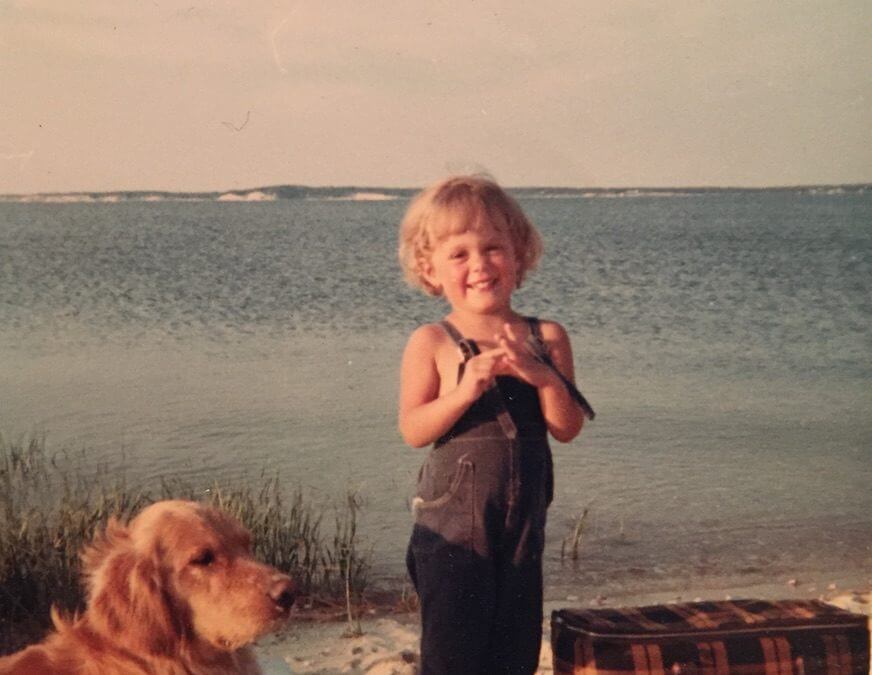
by Lisa Fuller | Jan 20, 2022 | Communication, Encouragement, Feelings & Emotions, General
As a kid, I often heard: “Don’t be full of yourself.”
I remember my mom sitting on the hamper beside the tub as I took a bath.
Holding out my arm to her I said “Look at my tan!” My parents worshipped the sun.
“Lisa,” she said. “Don’t be so vain.”
“You’re So Vain” was on one of our six 8 track cassettes and I knew every word, would sing along and ponder its meaning, staring out the car window. (The song has a very cool intro.)
Our family had an unspoken mantra: Even if you’re good at something, don’t show it. Make yourself small so no one can cut you down.
Decades later, when I picked my daughter up from pre-school, I asked her teacher, “How’d it go today?”
Our beloved Gay Gay replied,
“It was great! Your daughter is so full of herself!”
She smiled her huge smile and laughed her cackling laugh, like this was news to be celebrated!
Her words and positive energy seared into my brain.
This new interpretation felt like a window opening letting a cool breeze into a hot yoga studio.
“It was great! She is so full of herself!”
Here was my daughter: a self-possessed three year old, full of her interests, her curiosity, her body, her life… full of herself!
This past weekend, driving home from a glorious walk along the San Francisco Bay, I listened to my friend Suzie telling a story and the old expression escaped her lips: “So and so is so full of themselves” and not in a good way.
Remembering Gay Gay and my epiphany that day, I interrupted Suzie, “Wouldn’t it be great if we were all full of ourselves?! Isn’t that what we want because, sh*t, what’s the alternative?”
She squeezed my arm. “You’re right. If we’re empty — void of ourselves — then who or what will fill us? Whatever comes along and these days there’s too much bad stuff to fill us if we don’t fill it with ourselves.”
Here’s the bee in my bonnet for the start of 2022…. Let’s all be full of ourselves and encourage that in the ones we love.
I aspire to be more full of myself this year and invite you to do the same. I don’t know exactly what that will look like, but I’m excited to pay attention and find out.
Please let me know what it looks like for you!
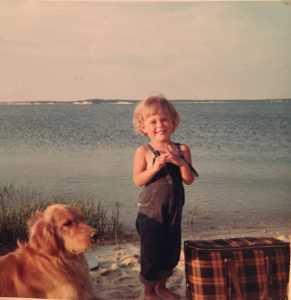

by Lisa Fuller | Apr 14, 2021 | Communication, Connection & Love, Feelings & Emotions, General, Power struggle, Self-care, Self-regulation, teenager
As I write today I’m reminded of a post I wrote 8 years ago, What I Did When My Daughter Said, “You’re the Boringest and I Hate You! This time, however, it’s not what she said, but instead what she didn’t say and didn’t do that shined a light on some difficult parenting wisdom.
Part I – The Sweater
It all began when I knit my 14 year old daughter a sweater. She’d accompanied me to the store to choose a soft, washable yarn in a neutral color she’d actually wear. During Covid I’ve picked up knitting again and found a healthy distraction in searching for patterns and scrumptious yarns. Because my grandmother taught me to knit when I was young, knitting sent a gentle signal to my brain, “Everything’s okay.”
A couple of weeks ago when I completed the sweater, I laid it on her bed so she’d see it when she got home. I imagined she’d try it on and show me how it fit. Over the past month I’d measured the length of her arms, inquired about how cropped she’d like it as that’s the current fashion and worked to tailor it just for her.
Because she never mentioned the sweater, I checked in with her in the afternoon, “Did you see the sweater? Please try it on — I’d love to see how it fits.”
She answered, “Not right now.”
Later I asked her again and she explained that she’d already changed into her pj’s but that she’d do it the next time she got dressed. The next day I decided to mention it one last time. My heart felt heavy. I didn’t want to get entangled in a power struggle with her over the sweater I’d made for her because I adore her. Needless to say, I never saw it on her.
Part II – The Pile
My daughter had recently cleaned out her room, placing all outgrown and unwanted items into a huge bag in the hall. Beside the bag was a loose pile of papers with a blue glue gun resting on top.
After a few days of watching the pile collect dust, I took a closer look and saw under the glue gun a photo storybook I’d created and given to her for her birthday some years ago.
This project, with a closeup of her soft two year old face on the cover looked to have seen better days. I picked it up and brought it into her room asking, “What’s happened to this?” She confirmed that she’d found it spoiled, likely because last fall she’d placed a little pumpkin from our garden on top of it, in a drawer. The pumpkin decomposed over the course of months.
I felt an anger rise in me and said, ‘You clearly don’t care about it.”
She answered, “I do care.”
I said, “If you cared you’d have come to me when you found it and asked what we could do.” I swore, “Just f***ing get rid of it then, but don’t leave it on the floor for me to take care of.”
Heart pounding, I retreated to my bedroom across the hall where I stood motionless, a little shocked that I’d spoken to her so harshly. Being the youngest child she was adept at avoiding conflict and I’d become more able to keep my cool.
For a split second I thought, I’m going to ignore her, give her the cold shoulder. A memory flashed from the recesses of my mind of my dad ignoring me for two weeks after his feelings had been hurt because I’d been spending weekends at my friend Sharon’s house. I can remember him scolding me as we stood inside our front door, “You care more about her family than you do your own!” I was in 5th grade at the time and it was two weeks before he looked at or spoke to me again.
I decided I wasn’t going to ignore her, even though to hurt her back felt like the “natural” response.
Returning to her room, disintegrating storybook in hand I said, “I realize the reason I’m so upset is that my feelings are hurt. It’s becoming clear to me that you don’t care about things I’ve made for you.”
I was of course thinking about the unadorned sweater.
I repeated myself, “It’s becoming clear to me, and I’m speaking to myself now, that I need to focus less on you and more on myself.”
I felt my voice catch and tears well in my eyes.
Unlike 8 years ago, this time she said nothing. Through the uncared for storybook and forgotten sweater I was getting a message loud and clear, “Mom, get a life. While I need you to be there for me, I don’t need you the same way I used to and I’m not going to act in ways to please you. You haven’t trained me to take care of you and I’m not going to start now. My main concern right now is my friends and all the changes I’m going through. You can’t use me to feel good about yourself.”
I felt grounded when I turned to leave her room, closing the door quietly behind me.
I haven’t figured it all out yet.
It felt valuable to write about and share with you because it’s not spit spat all settled in me and tied up with a bow and maybe you’re having your own messy parenting moments. I’m sitting with a real life collision between my daughter’s age appropriate growth and what I’m gently naming my age appropriate stuckness, a slice of difficult wisdom.
It’s not only children who grow. Parents do too. As much as we watch to see what our children do with their lives, they are watching us to see what we do with ours. I can’t tell my children to reach for the sun. All I can do is reach for it, myself.
— Joyce Maynard

by Lisa Fuller | Jun 15, 2019 | Communication, Encouragement, General, Mutual Respect, Parenting, teenager
When I first heard the report on the radio I thought it was a hoax.
At least 50 people have been charged with participating in alleged conspiracy that involve cheating on college entrance exams, like the SAT and ACT. Some of their children were admitted to elite colleges, including Yale, Stanford, UCLA and the University of Texas, by bribing coaches.
NPR.org
I listened further and quickly realized it was no joke. I felt stunned then disgusted and outraged. Then I noticed I also felt surprised. These were quite strong feelings to have over something that didn’t involve me or anyone I knew personally. My heart ached because of the obvious social injustice that permeates every aspect of our society but there was more.
I realized that the story drew me in because — if I’m being honest with myself — I could genuinely relate to the motivation of those parents.
While for the most part I’ve resisted the urge to fix everything for my children the way these parents so blatantly did, I have, on several occasions, had a panicky sensation that I’ve got to get ahead of this! One that’s accompanied by an intense fear that my child will feel badly … or even (gasp!) fail at something important.
Do these internal thoughts sound familiar?
- If she finds out she’s not invited, she’ll be crushed by the social rejection.
- I feel so sad for him that he wasn’t chosen for the team.
- This learning disability will ruin his self esteem and likely his life.
- She won’t be able to get over the experience of a serious illness or injury.
- He’ll become depressed if I limit screen time or don’t get him a smartphone.
- Why doesn’t she have more friends? What’s wrong with her?
These parental fears are more common than you think. The impulse to smooth it over and FIX IT for our kids is the norm these days.
What the Varsity Blues example makes so clear is that the short term fix leads to much bigger long term problems.
For our “little” issues its true, too. I recently heard a story of a mom who was distraught because her 13 yo daughter wasn’t being included in the activities of the popular girl clique. What that mom didn’t know is that her distress likely increased — and even created additional suffering for her daughter.
And, we’re mistaken if we think our unspoken fears won’t impact our children. Kids are energetic sponges. They feel our doubt and it colors their confidence and resilience.
What we need to remember is that when we excessively worry about our child’s life and sometimes even move to “fix it,” we’re telling them:
- You’re not enough just as you are,
- There’s a narrow range of what’s acceptable,
- What matters most is what others think,
- You’re incapable of managing your own live.
Believing in your child’s unique capabilities, embracing who they are, just as they are, is by far the most important stance you can take as a parent.
I’m not suggesting that you ignore or deny their struggles, but we can choose faith over fear as our guide and take a grounded position with them. In Positive Discipline we use the metaphor of a tree, strong, balanced and flexible. When we bring these qualities to parenting, our children they have a sure place to rest.
What inspired me to write this post was what my 12 year old daughter shared after she read an article about the admissions scandal.
“Mom, you know what the worst part is? Let’s say I got into Harvard and then found out that you had paid them to get me in… the worst part would be knowing that you didn’t believe in me.”
my 12 yo daughter
She’s right.
Believing in your child is a tremendous gift to them.
In Deborah McNamara’s article, Resilience: Embracing the Emotional Journey, she writes,
It is a parent’s belief in a child that helps them feel there is a way out of it all.
Deborah McNamara
Here are 4 specific ways you can show your child that you have faith in who they are:
- Give children of all ages opportunities to pitch in and be responsible. This often takes letting go of your expectations of how the task is completed. (The dishes may not be as sparkly as you make them!) Let them know their contribution makes a difference. More ideas.
- Pay attention to your child and get to know and appreciate them for all they are, not just the easy to love parts. Looking back now, I see I could have spent more time learning about and even playing video games with my son. More ideas….
- Love and connect with your child each day. While this sounds obvious, time gets away from us and it helps to be reminded to intentionally connecting. More and even more ideas….
- Learn to tolerate and even embrace feelings, both yours and your child’s. When hard stuff happens, resist the “fix and rescue” mode and instead practice letting go. In doing so, your child will have an opportunity to genuinely feel their disappointment, anger, sadness… you name it. When appropriate, help your child name their feelings. Research shows that when we label our emotions, we’re better able to integrate them.
My friend shared a mantra she uses to help her remember, in the most challenging moments, that her child’s path is just that, her child’s path:
Love the child you have, her path may not be the one you imagined but it’s right for her.
The bottom line is, your child is going to be ok.
That doesn’t mean it’s always going to be fun or easy, but at a deeper level, she will be just fine, whether she’s reading by first grade or not, whether she goes to the prom or not, whether she attends college or not. She’ll always have a loving family and that’s the only part you can control.
After writing this post I listened to a discussion on the radio program, Fresh Air, addressing this very topic. I was struck by the guest’s advice for parents supporting their older teens:
Your child is the expert on himself or herself. We are 20th-century parents giving advice to 21st-century kids. They’ve inherited a brave new world that we never lived in.
Dr. B. Janet Hibbs
I would love to hear your thoughts on this topic.
How do you show your child you believe in him/her? How do you keep perspective? What’s hard? Know that you comments in the section below will support someone who shares your concerns and questions.
 I was competing in my first cross country race, a freshman in high school, when I hit the notorious ‘wall’ going up aptly named Cemetery Hill in Van Cortlandt Park in the Bronx. My legs felt like lead stumps, my breath was short and effortful, and utterly defeated I decided to walk. Then I heard a voice, it was my Coach Mitch, yelling in his Queens accent, Come on Fuller, you can do this!!! I didn’t even know he was there, yet somehow he appeared, clipboard shoved in his armpit so he could clap his hands and wave me up the hill. As I trudged past him, I used the little energy I had to swear at him.
I was competing in my first cross country race, a freshman in high school, when I hit the notorious ‘wall’ going up aptly named Cemetery Hill in Van Cortlandt Park in the Bronx. My legs felt like lead stumps, my breath was short and effortful, and utterly defeated I decided to walk. Then I heard a voice, it was my Coach Mitch, yelling in his Queens accent, Come on Fuller, you can do this!!! I didn’t even know he was there, yet somehow he appeared, clipboard shoved in his armpit so he could clap his hands and wave me up the hill. As I trudged past him, I used the little energy I had to swear at him. 




